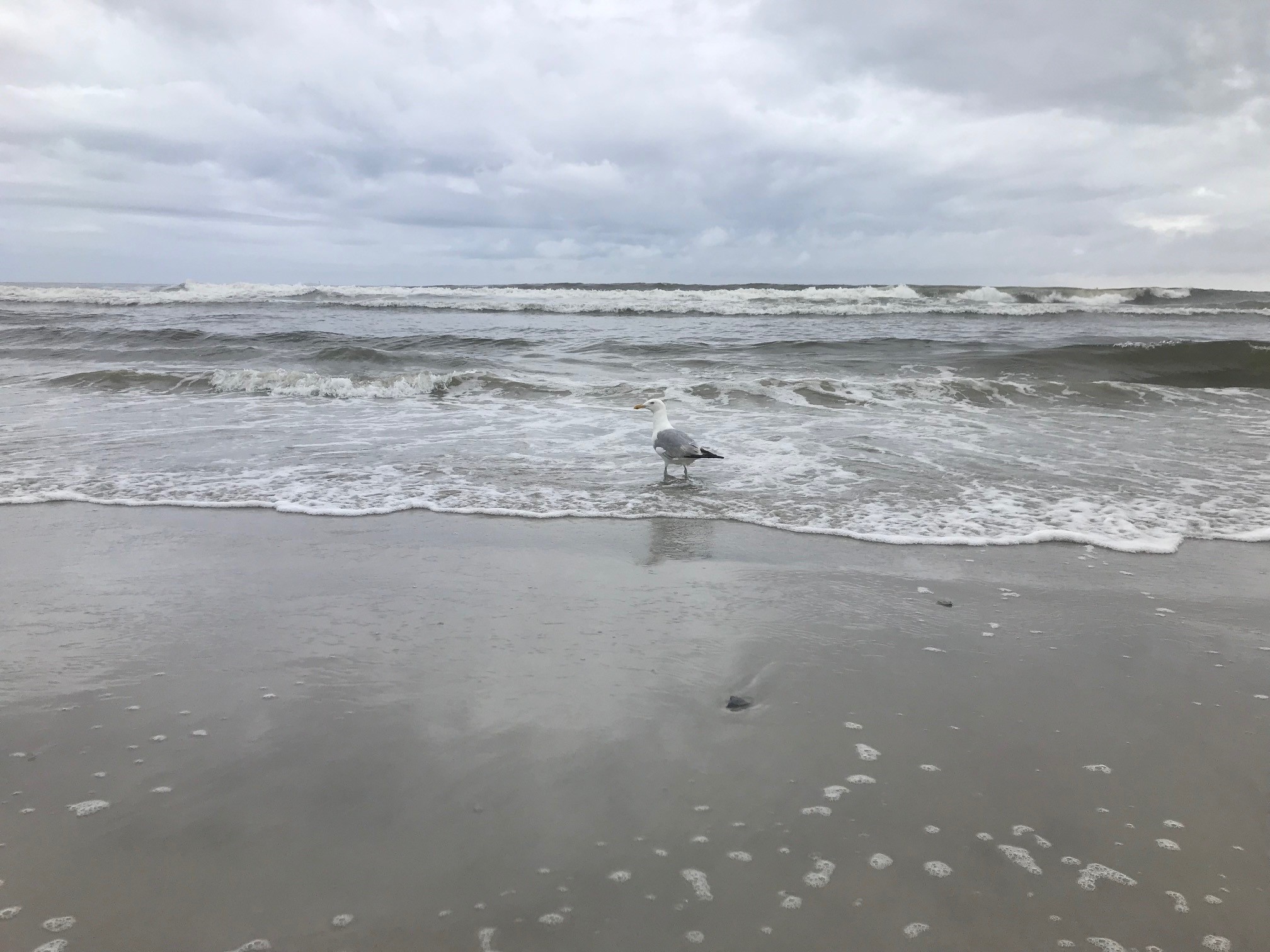We all spend way too much time on zoom these days.
All that time spent staring at a small screen, with small images of other people doing the same thing, talking about very specific issues, can produce tunnel-vision and tunnel-thinking: that these are the most important meetings in the world, on the most important issues in the history of humanity.
This sort of zoomed-in narrow-mindedness can make us lose perspective. We become so focused on the small boxes in front of our noses that we lose sight (literally) of the bigger picture. That leads to constricted thought and to a lack of mental freedom: when we are unaware of the wider world, we can’t see bigger possibilities and other points of view – and are often trapped in small thinking and solving small problems.
So, to gain some much-needed perspective, try zooming out instead of zooming in.
This is not new advice, of course; pre-zoom, the Enlightenment philosopher Baruch Spinoza (1632 – 1677) coined a Latin phrase to describe this broad, bird’s-eye-view perspective: “sub specie aeternitatis,” or, in English, “from the perspective of the eternal.” This wasn’t entirely Spinoza’s idea, either; Plato suggested in the Republic that meditating on “all time and being” could help rid people of their fear off death, and the Stoics also had their own motto of “memento mori” (remember that you, too, will die) to remind themselves of how vast time was and how short their own lives were compared to that vastness. The point of considering a much larger perspective, both spatially and temporally, is not to make us tremble and shrink in fear, but rather to free us from fear – if all the things we’re worried about now are so insignificant compared to the vastness of time and space, and everything and everyone is just going to disappear or die in the long run, then maybe we shouldn’t be so worried, anxious and upset about the small things – because, from the perspective of eternity, they’re all small things.
Here are three practical exercises for zooming out and putting your fears, concerns, desires, and even yourself (and your ego) in their proper perspective; try them the next time you feel too zoomed-in.
Exercise one: look up.
It’s really easy to zoom out into space – all you really need to do is go outside at night, stare up at the stars, and contemplate the vastness of space. While you’re doing that, think of yourself standing on the Earth, and realize that the Earth is just one of nine (maybe more!) planets orbiting just one star, our sun, which itself is 93 million miles away. Think that the sun is just one of billions of stars in our own Milky Way galaxy, and that the Milky Way galaxy is just one of millions of galaxies in the observable Universe. You are infinitesimally small, a mere pinpoint on a pinpoint on a pinpoint, in the vastness of everything there is.
Exercise two: look back.
However old you are, think back to when you were a small child – how long ago that seems, and how much has changed since then! Now think back farther than that, to when your parents were children – and when your grandparents, and their parents, were children. Think back on all the generations upon generations that preceded you – back about 300,000 years or so, to when the first modern humans on Earth, primitive homo sapiens, appeared. Think farther back to when humans first diverged from their closest evolutionary relatives, the chimpanzees and bonobos – that’s about 6 million years ago. Go even farther back: 65 million years ago, when the dinosaurs were wiped out by a mass extinction event, and 200 million years ago, when the forebears of the dinosaurs were themselves wiped out by yet another mass extinction event. Let’s go back to the beginning of life on Earth – that’s about 3.5 billion years ago, with the oldest fossils of single-celled organisms. And now back to the beginning of the Earth itself, about 4.5 billion years ago, and farther back to the Big Bang at the very beginning of the Universe – nearly 14 billion years ago. You and everything you care about right now are here for an infinitesimally short time, less than the blink of an eye, in the incredibly vast span of time.
Exercise three: look outside yourself.
If looking up and looking back are exercises too abstract to give you some perspective, try one last exercise: looking outside yourself.
It’s easy to get stuck in our comfort zones, honing our expertise year after year, going deeper and deeper until we are way down at the bottom of a well, secure and smug, protected by the constant reassurance of our ego-reinforcing routines. The best way to climb out of that well is to look outside ourselves – to look beyond what we know and do well – and to try something new. Specifically, to try something so new and so foreign to us that we are almost certainly going to fail miserably, that we are forced to adopt what Zen Buddhists call a “beginner’s mind” and approach novelty like a child, eager to learn and unafraid of failure. Whatever new thing you decide to try for this exercise, make sure you stick with it until you feel uncomfortable – until you feel frustrated, angry, and like giving up. Only then will you begin to understand even remotely that there is a vast range of human experiences, knowledge, and cultural practices that is far beyond your own small area of expertise, and that other humans look just as proudly on their own small domains of comfort and security as you do on yours. This exercise can help us keep our egos in check, make us more humble, and make us better appreciate our fellow human beings and their experiences.

